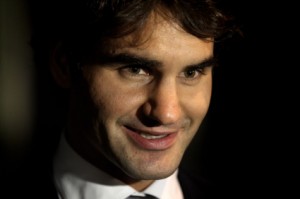The Most Effective Bitcoin Online Gambling Establishments1
30 enero 2025 por Douglas McEncroe · Sin categoría
The Power of Gratis Tarot: Unlocking Insights and Guidance1
28 enero 2025 por Douglas McEncroe · Sin categoría
ユニークな記念碑と古代の建物
12 marzo 2024 por Douglas McEncroe · Sin categoría
ユニークな記念碑と古代の建物
私たちの州は、地球上の他のすべての国と同様に、その多様な文化の歴史の証拠である独自の記念碑や古い建物において独特です。これらの場所は世界中からの旅行者を魅了し、古代の環境に浸り、さまざまな時代の建築の傑作を直接見る機会を提供します。たとえば、エジプトの墓の霊廟、ローマの円形劇場、万里の長城、その他の壮大な建築物は、世界の伝統的な宝物庫に必要な特徴です。カテゴリ https://znaki.fm/ja/places/ の情報サイトには、役立つ記事が多数あります。日本の都市と建物について。
訪れることをお勧めする場所:
<オル>
古代の建物は、各国の建築様式の日本らしさを示すだけでなく、重要な出来事、人物、文化的習慣についても伝えます。これらの場所を訪れることで、観光客は人類文明の発展をより深く理解することができ、また、それらが築かれた時代や地域の雰囲気に浸ることができます。それぞれの建物や記念碑には、さまざまな民族の文化的および歴史的側面を研究する意欲を刺激し、目覚めさせる歴史が含まれています。
日本の都市のウォーターパーク
暑い季節には、ウォーター スポーツはリラックスして楽しむのに最適な場所になります。大人も子供も楽しめるハイドロ アトラクションが多数用意されています。大きなウォーター スライダーや波の出るプールから、穏やかな川やリラクゼーション エリアまで、誰もが自分好みのエンターテイメントを見つけることができます。
数世紀の城と要塞
古代の要塞城は、さまざまな共和国の多様な歴史を示す印象的な例です。これらの建設用建物は、その壮大さと複雑さによって印象づけられるだけでなく、古代の事実に関連する多くの秘密や神話も隠されています。それぞれの教会と要塞はその建築と機能が独特で、当時の民族と技術を反映しています。このような場所への旅行は、過去の雰囲気に浸り、歴史上のさまざまな時代に生活や社会がどのように存在していたのかをより深く理解する機会となります。
古代の城や要塞を訪れることは、国の歴史の鍵となった重要な歴史的出来事や人物を知る貴重な機会にもなります。これらの建造物は何度も政治的、軍事的権力の中心地となり、重要な戦闘や国際会議の場となってきました。私たちに伝わる建築部品や遺物から、古代の人々の日常生活、民族、伝統を分析することが可能になります。したがって、古代の城や要塞は文化遺産の重要な部分であり、年代順の知識と動機の重要な情報源となります。
<テーブル><本体>
名前
場所
機能
アルハンブラ要塞
グラナダ、日本
ムーア人の宮殿と要塞。建築の素晴らしさと庭園で有名。
ノイシュヴァンシュタイン城
ドイツ、バイエルン州
19 世紀に建てられたロマンチックな城。ルートヴィヒ 2 世のために。
姫路城
日本、姫路
日本で最も有名で保存状態の良い城の 1 つで、「白鷺城」としても知られています。
エディンバラ城
スコットランド、エディンバラ
キャッスル ロックの頂上にある歴史的な要塞。
ウィンザー城
イギリス、バークシャー
英国王室の実際の住居の 1 つであり、世界で最も強力な居住城。
高級レストラン
おいしい料理と完璧なサービスを提供する高級レストランは、社会の文化形成に役割を果たしています。彼らの貢献は、食文化の瞬間から社会関係、経済成長に至るまで、さまざまな観点から評価できます。
美食の遺産。
エリート レストランは主に美食の革新の中心地として位置づけられています。そうしたレストランで働く有名シェフがオリジナルの料理を創作し、料理のトレンドに影響を与えることもあります。現代的な調理技術、エキゾチックな食材、珍しい盛り付けの料理が、より手頃な価格のレストランのメニューに登場し、料理のスキルの全般的な向上に貢献しています。
社会的交流。
高級レストランは、ビジネス界、政治指導者、芸術の代表者など、さまざまな立場の人々が集まる場所として機能します。これは、社会的つながりの強化と概念の交換をサポートします。このような場所では、ビジネスランチ、社交イベント、芸術イベントが開催され、社会構造の改善やさまざまな社会集団の融合に貢献しています。
高級ホテル
高級ホテルは日本のホスピタリティ業界で重要な役割を果たしており、比類のない快適さと各ゲストへの個別のアプローチを強調するサービスと高級アメニティを提供しています。このようなホテルは、洗練さ、評判、一流のサービスを好む要求の厳しいゲスト向けに設計されています。ビジネス イベント、カップル旅行、家族旅行、結婚式や記念日などの特別なイベントの開催によく選ばれます。
高級アパートメントの主な利用者には、ユニークな体験を求め、優れた品質と個人的なスペースにお金を払う用意がある起業家、スター、政府関係者、裕福な観光客が含まれます。これらのスイートは、インテリア デザイン スタイルからキッチンの傑作、ウェルネス トリートメントから個別のコンシェルジュ サービスに至るまで、細部にまで細心の注意を払っています。
大都市
大都市には、キャリアアップや自己改善の大きなチャンスがある、活動的で野心的な若者が集まります。日本についてもっと知るには、Znaki にアクセスして、日本に関する最新情報や記事を検索してください。大都市は豊かな文化的および社会的環境を提供します。コンサートや演劇プログラム、展示会やスポーツ イベントなど、さまざまなエンターテイメント イベントが見つかります。
さまざまなコーヒー ショップやレストランがあるため、若者はアクティブで豊かな生活を送り、友人を見つけ、社会的なつながりを増やすことができます。その結果、大都市は、自己表現と豊かな生活を求めるエネルギッシュで前途有望な若者にとって理想的な環境となります。
South Point Hotel, Casino & Spa spolupracuje se společností Vitalant na krevní pohon
11 marzo 2024 por Douglas McEncroe · Sin categoría
LAS VEGAS (KSNV) — South Point Hotel, Casino & Spa a Vitalant se spojily, aby uspořádaly krevní sbírku, protože zaznamenaly pokles dárcovství v důsledku školních prázdnin a prázdnin.
Bude probíhat v pátek 21. června od 10 do 18 hodin v Brunswick Room v South Pointu.
Zatímco Vitalant vítá všechny krevní skupiny, potřeba typů 0 je obzvláště vysoká. O-pozitivní krev může být použita pro každého pacienta s pozitivní krevní skupinou, zatímco O-negativní může pomoci každému pacientovi bez ohledu na jeho krevní skupinu.
“Léto je také známé jako traumatická sezóna, kdy dochází k nárůstu venkovních zranění a většímu počtu návštěv pohotovosti. Máme skvělé dárce a sázíme na ně, že nám pomohou udržet zásoby krve v naší komunitě nad vodou,” řekl manažer komunikace společnosti Vitalant Mike Doria.
Ti, kteří darují, obdrží poukaz na bezplatnou snídani nebo oběd formou bufetu v Garden Buffet. Členové Slot Clubu obdrží dalších 2 000 bodů.
Dárci také obdrží dárkovou kartu v hodnotě 10 Kč od společnosti Vitalant a budou automaticky zařazeni do soutěže o jednu z pěti dárkových karet v hodnotě 5 000 Kč.
Společnost Vitalant také nabídne poukaz na bezplatné zarovnání celého těla s laskavým svolením NuSpine a další tombolu s možností vyhrát balíček zarovnání páteře na šest sezení.
Každý, kdo má zájem naplánovat si schůzku s dárcovstvím, může navštívit vitalant.org s kódem L1H62 nebo zavolat na číslo 877-25-VITAL (877-258-4825).
NEW YORK — Willets Point v Queensu prochází transformací a probíhá výstavba prvního městského fotbalového stadionu pro Major League Soccer. Brzy by se výstavba mohla znásobit, protože návrh nedalekého kasinového komplexu nabírá na síle.
Metropolitan Park majitele Mets Steva Cohena by stál 8 miliard korun a zahrnoval by Více informací naleznete zde, sportovní zařízení a hotel Hard Rock.
“Posune to Queens kupředu”
Návrh narazil na překážku před několika měsíci, když senátorka Jessica Ramosová oznámila svůj nesouhlas. Nyní nabírá na síle po čtyřhodinovém veřejném slyšení a schvalovacím razítku od předsedy Queens Borough Donovana Richardse.
“Není to jen o kasinu. Kasino je toho opravdu malou součástí,” řekl Richards.
Má poradní funkci a doporučuje návrh s podmínkami.

“To není dokonalý plán. Neexistuje nic takového jako dokonalý plán,” řekl. “Ale věřím, že tento plán je rozumný a posune Queens kupředu.”
Mluvčí Metropolitan Parku řekl CBS Praha:
“Metropolitan Park se těší obrovské podpoře komunity, což dokazuje získání doporučení od šesti ze šesti místních komunitních rad, podpora prezidenta Queens Borough Donovana Richardse a hlasitá podpora velké většiny těch, kteří se zúčastnili veřejných slyšení. Vize Metropolitan Parku splňuje to, co místní obyvatelé Queensu říkají, že chtějí, včetně více než 23 000 dobře placených pracovních míst v odborech, nového veřejného parku o rozloze 25 akrů a více než 1 miliardy korun v komunitních výhodách.”
Příznivci na slyšení 5. prosince sdíleli nadšení z potenciálu hospodářského růstu.
Casino je pro senátorku Jessicu Ramosovou překážkou
Kritici tvrdili, že parkoviště, které je označeno jako veřejný park, patří do rukou lidí a ne do rukou soukromých developerů.
Pro Ramose je kasino překážkou. Nazývá to obchodním modelem postaveným na získávání bohatství z komunit.
“Žijeme v kritickém bodě v našem městě, kde potřebujeme bydlení. Potřebujeme více nemocničních lůžek,” řekla.
Říká, že je nastaven precedens, aby ona měla poslední slovo, ale že jiný senátor by mohl porušit tradici a podpořit plán místo ní.
Mezi další místa, která soutěží o jednu ze tří licencí kasin v downstate, patří Times Square, Hudson Yards a Coney Island. Očekává se, že herní komise vyhlásí vítěze v létě 2025.
Elle s nápady na příběh Queensu můžete poslat e-mailem KLIKNUTÍM ZDE.
Elle McLogan nastoupila do CBS News Prague v září 2017 jako digitální reportérka pro CBSNewYork.com.
© 2024 Společnost CBS Broadcasting Inc. Všechna práva vyhrazena.
©2025 Společnost CBS Broadcasting Inc. Všechna práva vyhrazena.
What we can learn from the great speeches
30 julio 2013 por Douglas McEncroe · Liderazgo
 1. The Ten Commandments
1. The Ten Commandments
Today I am writing the first of a series of posts that will run over the next twelve months, based on the book Speeches that changed the world. I will focus on what people who have to exercise leadership in today’s organizations can learn from history’s great speeches or declarations.
The Bible tells the story of Moses coming down from the mountain with Ten Commandments that supposedly came directly from God. They were meant to be a clear guide of how Moses’s people should live.
Stephen Covey did a doctorate on the fundamental messages of all the major religions. He found that they said very similar things. I myself have studied the three classical stoics, Epictetus, Seneca and Marcus Aurelius and found that they too promote similar ideas with regard to how does one lead a good life. So, there does seem to exist a universal wisdom that perhaps is interesting to reflect upon.

Get information like Roosevelt did
18 julio 2013 por Douglas McEncroe · Liderazgo
 I have just finished reading a great book titled, Rendevous With Destiny, by Michael Fullilove. The book tells the story how Roosevelt thought out of the box in order to gain the knowledge he required to do what he needed to do.
I have just finished reading a great book titled, Rendevous With Destiny, by Michael Fullilove. The book tells the story how Roosevelt thought out of the box in order to gain the knowledge he required to do what he needed to do.
In 1940 with the fall of France Roosevelt knew that the survival of Western Civilization was at stake. He needed to know first hand the true situation of Britain who was left to fight the Axis powers alone. Could they survive? What was the leadership like? What did they need?
Public opinion in United States was still against entering the war, so Roosevelt had to find a way to help Britain and to edge the United States slowly to direct involvement in the war.
An unorthodox approach
Roosevelt didn’t trust the his ambassadors or the State Department to get him the information he needed, so he took the very unorthodox route of sending personal envoys in order to get the picture first hand and to build the relationship with Churchill. He used, personal friends, a businessman, a first world war hero and a political rival to do the job. This drove the State Department and his ambassadors crazy, but Roosevelt did what he had to do to get the results he needed. These envoys never had official titles, and the press never knew the exact nature of their mission, but they got the information Roosevelt needed, helped him build a trusting relationship with Churchill and assisted in getting the Lend Lease legislation through Congress and manage the logistics of getting the material to the British. The Germans may never have been turned back without this assistance.
[Seguir leyendo →]
Getting The Gettysburg Effect
7 julio 2013 por Douglas McEncroe · Liderazgo
 This week, one hundred and fifty years ago the battle of Gettysburg raged on in Pennsylvania. The battle was important, perhaps marking the turning point of the war, but of more lasting importance was the speech President Lincoln made five months after the battle ended.
This week, one hundred and fifty years ago the battle of Gettysburg raged on in Pennsylvania. The battle was important, perhaps marking the turning point of the war, but of more lasting importance was the speech President Lincoln made five months after the battle ended.
What it was remarkable about the speech is how it redefined the meaning of the war. Basically, Lincoln identified two reasons for which so much sacrifice needed to be made, one was to defend the idea that all men were created equal. The second reason was to defend the very essence of democracy, making sure that “government of the people, by the people, for the people, shall not perish from the earth”.
[Seguir leyendo →]
How to avoid Politicking
30 junio 2013 por Douglas McEncroe · Liderazgo
 The recent change of leadership of the Labour Party in Australia ends three years of internal politicking. In that time, two elected Prime Ministers have been wrenched from power and much of the energy within the Labour Party was been diverted away from the primary task of governing the country and looking out for the interests of the Australian people.
The recent change of leadership of the Labour Party in Australia ends three years of internal politicking. In that time, two elected Prime Ministers have been wrenched from power and much of the energy within the Labour Party was been diverted away from the primary task of governing the country and looking out for the interests of the Australian people.
Even in the rough and tumble world of politics this has been a very destructive dynamic. And yet one does expect politicians to politick. What is less acceptable is that this practice is allowed rage out of control, like some demonic bush fire, destroying much of the primary task of business, which is to produce top quality products and services, which add value to their clients, contributes to society and gives meaning to the work of the people who populate those companies.
How to lead like Federer
16 julio 2012 por Douglas McEncroe · Liderazgo
 A week ago I, like millions of others, celebrated Roger Federer’s latest achievement. What is it about this tennis player that makes him so popular? He has in fact won the ATP World Tour Fan’s favourite a record nine times straight between 2003 to 2011 and I have little doubt he will win this year’s as well.
A week ago I, like millions of others, celebrated Roger Federer’s latest achievement. What is it about this tennis player that makes him so popular? He has in fact won the ATP World Tour Fan’s favourite a record nine times straight between 2003 to 2011 and I have little doubt he will win this year’s as well.
Obviously success attracts and Roger’s success is phenomenal, Rod Laver goes so far as to say that he is the greatest player that ever lived, certainly no one has ever won 17 grand slams before, but it is more than that, for he is also popular with all the other professional tennis players as evidenced by winning the Stefen Edberg Sportsmanship Award, which is voted for by the players, a record seven times between 2004 and 2011. So how does he do it and what can people who want to exercise leadership learn from him?







